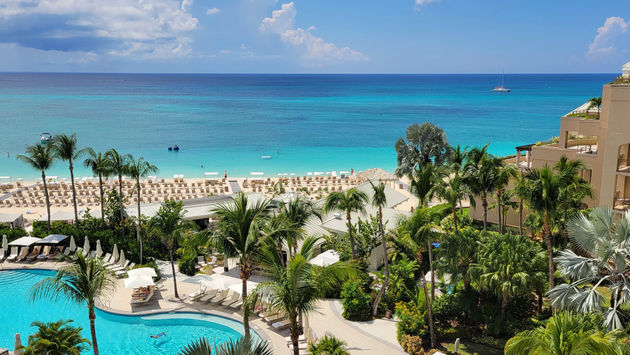Will airfare sticker shock ground Caribbean travel?

Is price a decisive component in Caribbean vacation planning?
Leisure travel to the region has surged in the post-outbreak landscape, however, a key airline association official says high airfares will likely ground the Caribbean’s soaring visitor arrivals.
“Caribbean destinations are running the risk of pricing themselves out of the global travel and tourism market where passengers have more choice than ever before,” said Peter Cerda, regional vice president, The Americas for the International Air Transport Association (IATA).
Speaking at a joint Caribbean Tourism Organization (CTO)/IATA conference held last week at the Ritz Carlton Grand Cayman, Cerda said taxes and fees levied on airlines by Caribbean governments factor significantly into high regional airline fares.
He warned the high fares will drive travelers to other destinations. “Today’s passengers have a choice and as the total cost of vacations increasingly become a decision-making factor,” Cerda said. “Governments must be prudent and not price themselves out of the market. Caribbean aviation taxes far exceed the global average.”
Cerda did acknowledge the taxes and fees have funded new transportation infrastructure across the region. But the IATA official questioned the “transparency” behind some governments’ taxation policies.
“We understand that the provision of adequate infrastructure for aviation comes at a cost,” Cerda said. “But very often it is difficult to see the correlation between the level of cost and charges and the actual service provided.”
Price War
In opening remarks at the Grand Cayman conference, Cerda said that globally, government taxes and fees represent 15 percent of airline fares, while the average is double in the Caribbean, with taxes and fees representing 30 percent of fares.
He said taxes and fees represent 56 percent of fares on flights from Barbados to Barbuda. Comparatively, taxes and fees on flights from Lima, Peru to Cancun, Mexico represent 23 percent of airfares.
In another example, Cerda said “From Miami to Antigua, we are looking at a $900 roundtrip ticket for the same dates in October. But Miami to Cancun averages around $310 for a round trip ticket,” he said. “For a family of four, that is a difference of over $2,000.”
Affordability Factor
Cerda said IATA was not seeking a unilateral tax cut across Caribbean destinations and acknowledged the region’s improved infrastructure benefitted airlines. “The industry is not asking for a hand-out, nor do we expect the infrastructure to be paid for by itself,” he said.
“What we are looking for is a competitive market operated in a transparent and equitable manner. We want to be the catalyst and the strong, strategic partner with the governments in the Caribbean.”
Yet Edmund Bartlett, Jamaica’s minister of tourism, countered that high Caribbean airfares result from more than high destination-imposed taxes.
Bartlett pointed to airlines’ yield management policies, which continuously push fares to the highest attainable levels, as at least partly responsible for the situation.
“What we are seeking is affordable travel,” he asserted. “That places some responsibility on the part of the carrier. It is an issue when you see [rates at] $900 to fly from Grand Cayman to Miami,” Bartlett said.
“But where are the efficiencies of the airline operating this route?” he asked. “Airlift has the responsibility to enable affordability.”
Countered Cerda, “The more attractive [governments] make [their] islands, the more competition, the lower the price is going to be.” But he later admitted, “We charge what the customer will pay based on demand.”
Kenneth Bryan, minister of tourism for the Cayman Islands and CTO’s chairman, said during the media briefing that Caribbean government officials will make a formal request to IATA “To say here’s some things that we’d like to see, so I and my colleagues can [conduct] a proper analysis on the pros and cons, to which we may respond.”
Said Bryan, “This is part of finding solutions to the connectivity issues. Of course the airlines are going to say ‘reduce pricing.’ But each one of our members have responsibilities they have they look at that.”
Bryan said Caribbean officials have “made a commitment to discuss” taxation and fees with airlines companies through IATA, which he called “a very good first step.”
